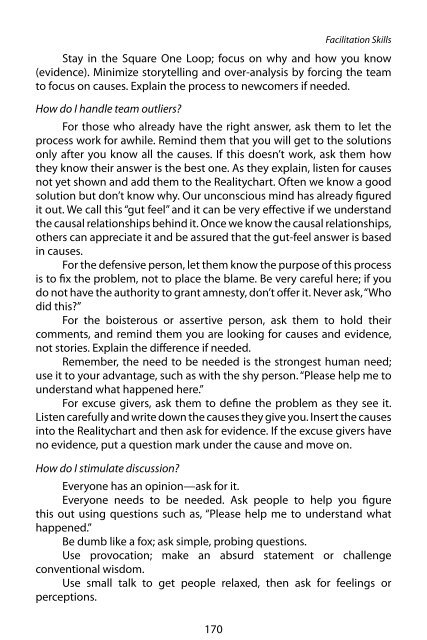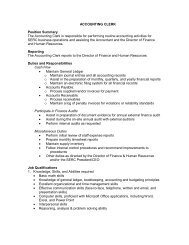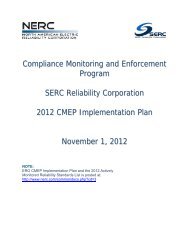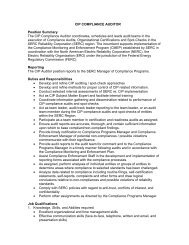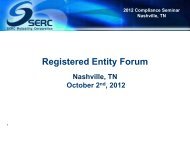RealityCharting e-book .pdf - SERC Home Page
RealityCharting e-book .pdf - SERC Home Page
RealityCharting e-book .pdf - SERC Home Page
- No tags were found...
You also want an ePaper? Increase the reach of your titles
YUMPU automatically turns print PDFs into web optimized ePapers that Google loves.
Facilitation Skills<br />
Stay in the Square One Loop; focus on why and how you know<br />
(evidence). Minimize storytelling and over-analysis by forcing the team<br />
to focus on causes. Explain the process to newcomers if needed.<br />
How do I handle team outliers<br />
For those who already have the right answer, ask them to let the<br />
process work for awhile. Remind them that you will get to the solutions<br />
only after you know all the causes. If this doesn’t work, ask them how<br />
they know their answer is the best one. As they explain, listen for causes<br />
not yet shown and add them to the Realitychart. Often we know a good<br />
solution but don’t know why. Our unconscious mind has already figured<br />
it out. We call this “gut feel” and it can be very effective if we understand<br />
the causal relationships behind it. Once we know the causal relationships,<br />
others can appreciate it and be assured that the gut-feel answer is based<br />
in causes.<br />
For the defensive person, let them know the purpose of this process<br />
is to fix the problem, not to place the blame. Be very careful here; if you<br />
do not have the authority to grant amnesty, don’t offer it. Never ask, “Who<br />
did this”<br />
For the boisterous or assertive person, ask them to hold their<br />
comments, and remind them you are looking for causes and evidence,<br />
not stories. Explain the difference if needed.<br />
Remember, the need to be needed is the strongest human need;<br />
use it to your advantage, such as with the shy person. “Please help me to<br />
understand what happened here.”<br />
For excuse givers, ask them to define the problem as they see it.<br />
Listen carefully and write down the causes they give you. Insert the causes<br />
into the Realitychart and then ask for evidence. If the excuse givers have<br />
no evidence, put a question mark under the cause and move on.<br />
How do I stimulate discussion<br />
Everyone has an opinion—ask for it.<br />
Everyone needs to be needed. Ask people to help you figure<br />
this out using questions such as, “Please help me to understand what<br />
happened.”<br />
Be dumb like a fox; ask simple, probing questions.<br />
Use provocation; make an absurd statement or challenge<br />
conventional wisdom.<br />
Use small talk to get people relaxed, then ask for feelings or<br />
perceptions.<br />
170


